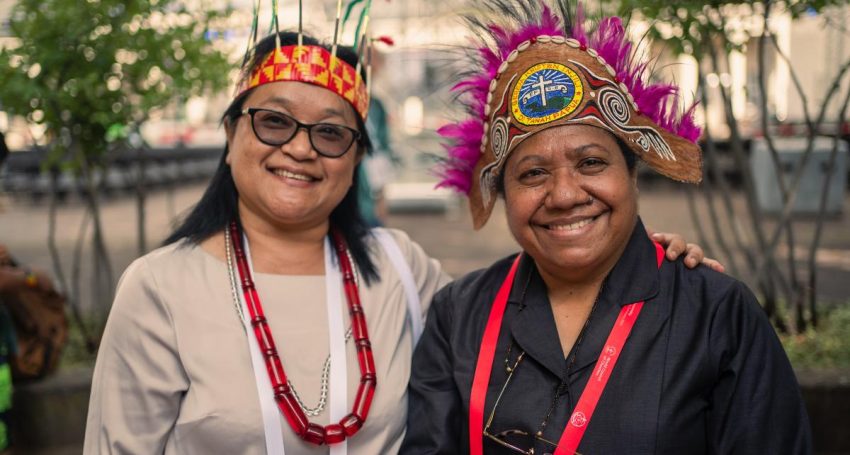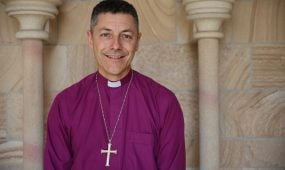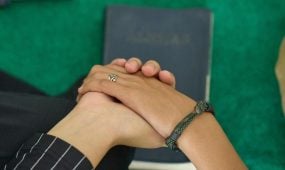WCC expresses solidarity, urges advocacy for the human rights and self-determination of Indigenous Peoples across the world
News
In a public statement released by the World Council of Churches central committee, the WCC recognises that “ever since their first contact with colonizers, Indigenous Peoples have experienced a series of harms,” and that the “mental and physical well-being of the children, grandchildren, and generations to come are at stake”

In a public statement released by the leadership of the WCC central committee, the WCC encourages continued advocacy, “with Indigenous Peoples and on their behalf in defence of their human rights, to protect the use of human rights language, to promote Indigenous Peoples’ right to self-determination and the right to participate in the decision making process within churches and in society.”
The statement was prepared by the Public Issues Committee at the WCC 11th Assembly in Karlsruhe, Germany.
Advertisement
The WCC recognizes, “ever since their first contact with colonizers, Indigenous Peoples have experienced a series of harms,” and that the “mental and physical well-being of the children, grandchildren, and generations to come are at stake.”
Well-being that is “directly tied to the healing and well-being of the lands, waters, and the air.”
The statement urges the WCC and member churches “to initiate processes to address Indigenous Peoples’ need for healing from historical and intergenerational trauma by the establishment of Truth and Reconciliation processes that are based on restoring justice and healing relationships wherever crimes against humanity and genocides have occurred.”
The WCC also calls upon the member churches “to ensure that the Indigenous Peoples programme has its own fully financed desk with adequate resources, and that the WCC Climate Justice work with the Indigenous Peoples programme be strengthened.”
Finally, the statement recognizes the “complicity of the Church in these genocides against Indigenous Peoples as well as the spiritual violence perpetrated by churches since first contacts,” prompting us to “decolonize our faith traditions in order to rediscover the life-nurturing potential of the gospel.”
First published on the World Council of Churches website on 16 September 2022.





